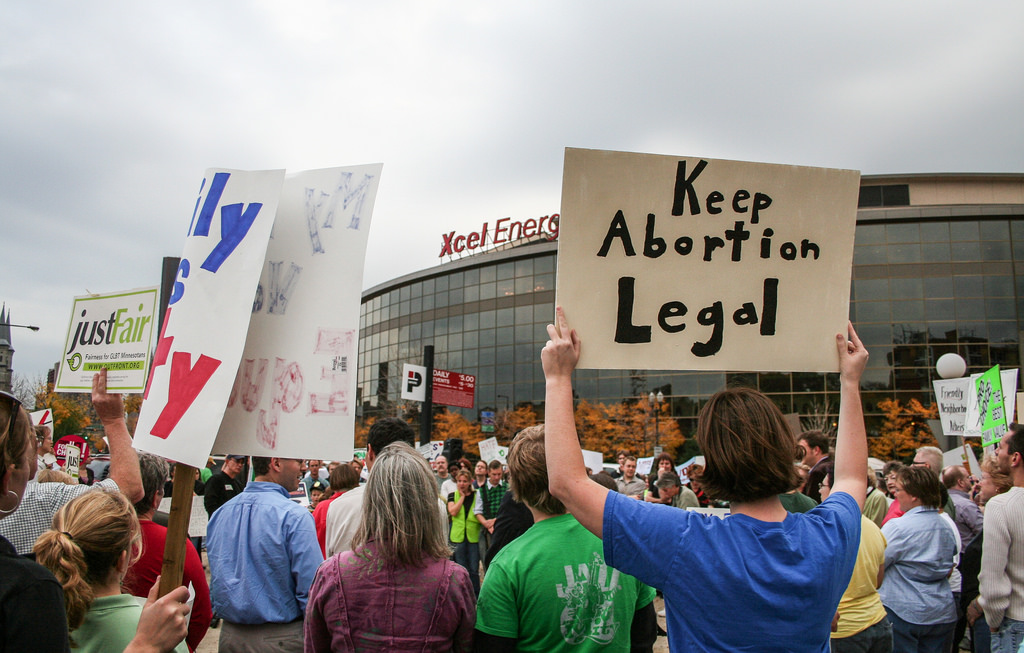According to the Guttmacher Institute, 29,960 abortions were provided in North Carolina in 2016. This number could rise or fall based on the status of federal abortion law and the law within North Carolina. Issues regarding the stability of Roe v. Wade, in the face of five conservative judges, have been brought to the forefront since the nomination of Brett Kavanaugh for Supreme Court Justice. Along with the possibility of a power shift in the Supreme Court, a new case has arisen regarding an Ohio Fertility Clinic that could change the legal definition of ‘life.’
In March of 2018, University Hospitals Fertility Clinic had a technical malfunction that allowed liquid nitrogen levels to fall too low in one of their cryogenic tanks, according to a statement they released after the incident. Because of this, they lost 4,000 embryos in total. For many couples, this news was a devastating blow and changed the course of their family planning. One couple, the Pennimen’s, filed a lawsuit in which their lawyer asked for a declaratory judgment that “the life of a person begins at the moment of conception” and “the legal status of an embryo is that of a person.” The verdict of this case could set a precedent for the legal definition of life and have an impact on the legality of abortion itself.
Senior Reagan Flynn thinks that the failure at the clinic should not be used to further an “agenda of claiming when life starts, because no one can decide when life starts. Scientists can’t even decide that; it’s something that is just too big of a question for anyone to really tackle,” Flynn said. “Trying to slide that in there and negate pro-choice lawmaking is just very wrong, and very morally reprehensible.”
Flynn was raised Catholic, went to Catholic school and still goes to church every Sunday. She was “definitely confused as a child,” when she heard people in her religion who “had very different views” than her and her family’s. Flynn does not prescribe to the official stance of the Catholic church on abortion, but thinks that the values of Catholicism have helped her develop her own perspective.
“If anything, religion informs my decision to be pro-choice because I think that treating everyone equally means both women and men having autonomy over their own bodies,” Flynn said. “I think that there are actually lots of Catholics like me who are pro-choice and think that everyone deserves the equal opportunity to succeed and make decisions for themselves with the mind that God gave them.”
Senior John Perez says that his religion has also come in conflict with his views on abortion, because, he says, as a Christian he is “not supposed to believe in that [abortion],” but wants to be “logical” and make his own decisions. Though he supports women’s right to make their own choices, he says that Christianity has led him to “prefer that people avoid it.”
While both Perez and Flynn maintain their pro-choice stance regardless of Christianity, junior Jackson Davis says that Christianity has influenced him to lean more pro-life, since his “religion frowns upon [abortion].” Davis says he has cases in which he thinks “it could be right and cases when it could be wrong.” He says that if the relationship is consensual there is a certain degree of responsibility.
“You knew what you were doing,” Davis said. “Especially if you consented, you knew there was a risk that you might have a baby– same thing for risking an STI and STD. If you’ve had a high school health class, you know what the risks are.”
Health Teacher Cameron Vernon agrees that health classes inform students of the risks of pregnancy and STDs, but thinks that students are never truly prepared to deal with any sort of pregnancy. He says that health class does as much as possible to inform students of their choices.
“We address that if a woman is pregnant, that there are options that she has,” Vernon said. “We talk about birth and a term pregnancy, and we also discuss adoption as an option, and we do say that there’s an option for abortion.”
He recognizes that the abortion debate has been “pretty torn for a number of years” and he doesn’t see the two sides “coming to an agreement on the issue anytime soon.”
The contentious debate over abortion has been brought to the public’s attention with the Kavanaugh hearings and the fertility clinic failure, giving students something to think about as they evaluate the issue for themselves.
–By Meera Butalia



